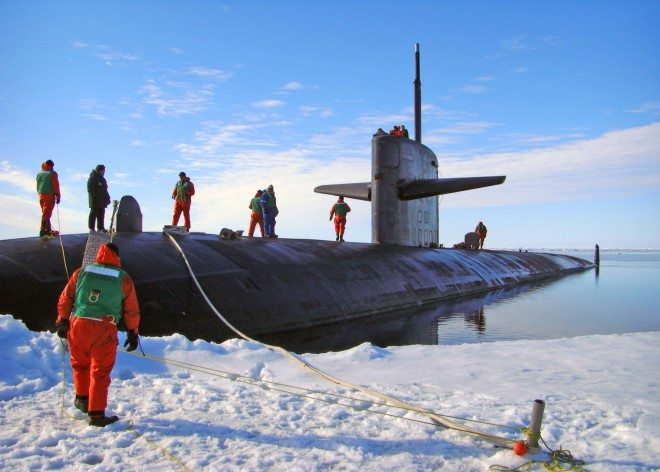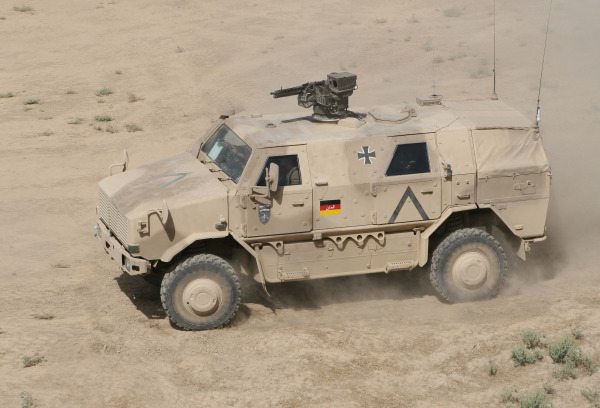During a U.S. Navy exercise, Raytheon’s DeepSiren underwater acoustic communication system bridged a capability gap for submarines operating beneath the Arctic ice by providing on-demand tactical mission and emergency response information.
The system was successfully operated during the Navy’s ICEX 2011 exercise conducted by the Arctic Submarine Laboratory far north of the Arctic Circle.
“Raytheon DeepSiren enables operational commanders anywhere in the world to quickly send tactical messages to a submarine operating at speed and depth – even under Arctic ice,” said Steve Moynahan, senior engineer, Raytheon Network Centric Systems (NCS), who deployed with DeepSiren to support the exercise. “This addresses one of the most significant shortfalls in submarine communications to provide mission-critical information while the vessel is submerged.”
At one point in the exercise, the use of DeepSiren took a real-world turn when the USS New Hampshire, submerged beneath a thick ice cover, needed to quickly find a suitable location to surface and evacuate a sailor stricken with appendicitis. U.S. Navy Capt. Rhett Jaehn, deputy director of operations, Commander, Submarine Force, said, “DeepSiren played a key role in facilitating the evacuation of the sick sailor and was heavily used during the exercise.”
Raytheon DeepSiren operates much like a text messaging system, providing submarines with mission essential and tactical information in a short message format.
“The DeepSiren solution addresses a very significant gap in the broad spectrum of underwater communications capabilities,” said Brian McKeon, vice president, Raytheon NCS’ Integrated Communications Systems.
McKeon added: “The system has been well designed, tested and demonstrated to work reliably over a vast range of oceanographic conditions. DeepSiren employs mature technology rated at TRL (technology readiness level) eight, and it can easily transition into production to support delivery of qualified hardware within months of a purchase order.”
At the start of ICEX, the Raytheon system facilitated the rendezvous of participating submarines with a camp established on the ice surface 150 nautical miles north of Prudhoe Bay, Alaska. DeepSiren transmissions from Ice Camp were received by two submarines at distances comparable to those demonstrated in previous at-sea trials and significantly greater than those achieved by other systems.
“Its acoustic transmissions are very much lower in power than typical sonar signals, making it both environmentally friendly and enabling it to operate without causing harmful interference to other acoustic sensor systems,” explained Trevor Barron, program technical director, Raytheon NCS. “We were able to very quickly adapt the DeepSiren software-defined acoustic modem to accommodate the unique requirements of the Arctic Submarine Laboratory.”











